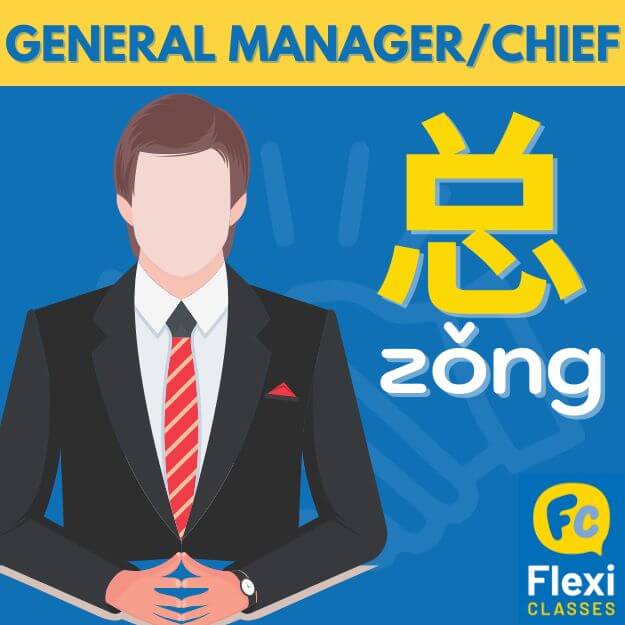Professional Greetings and Introductions in Chinese - Full Vocabulary List
Business Chinese Essentials 💼 Learn How to Introduce Yourself and Greet People Respectfully

Before you start to dive into business conversations with the Chinese, it’s essential to know how to set a positive and respectful tone.
In this blog post, we’ll walk you through different ways to introduce yourself and greet people formally and informally.
You’ll also learn to address people with respectful titles and languages in local Chinese culture.
Let’s dive in!
Professional Greetings and Introductions || Formal and Informal Greetings
Professional Greetings and Introductions || Basic Self-Introduction Phrases
Professional Greetings and Introductions || Introducing Yourself in a Formal Setting
Professional Greetings and Introductions || Common Titles and Their Uses
Professional Greetings and Introductions || Respectful Phrases and Etiquette
Professional Greetings and Introductions || FAQs
Professional Greetings and Introductions || Formal and Informal Greetings
💼 Formal Greetings in Chinese
When meeting people for the first time in business setting, it’s crucial to know how to say hello formally. It shows respect and sets a solid foundation for trust.
Here are some formal ways to say hello.
您好nín hǎo
Hello (formal)
您 is a more formal way to address a person than 你. Both means you.
Remember to use 您 to address someone you want to show respect to or who has more experience than you in an official business setting.
早上好
zǎo shàng hǎo
Good morning
晚上好wǎn shàng hǎo
Good evening
Use these phrases at a specific time during the day. It adds a personal tone, but still maintains a formal and respectful attitude when addressing a person.
再见
zài jiàn
Goodbye
This is the formal way of saying goodbye in Chinese. Literally, it means see you again. So, in a certain way, using this phrase means potential business opportunities in the future!
👋 Informal Greetings in Chinese
After you have become acquainted with Chinese and business partnerships are going well, people love to keep the relationships casual and friendly.
In the casual business settings, you can then use
你好
nǐ hǎo
Hi/Hello
After you are in China long enough, you’ll notice that Chinese love to say 你好 multiple times in a row. For example:
王总,你好你好你好!
wáng zǒng , nǐ hǎo nǐ hǎo nǐ hǎo !
Hi Chief Wang!
It’s a more casual way to show friendliness and get closer in connections.

好久不见
hǎo jiǔ bú jiàn
I haven’t seen you for a while
This is the origin of the phrase you often hear – Long time no see. It’s a great way to start a conversation with someone you met before.
最近怎么样?
zuì jìn zěn me yàng?
How have you been doing?
This is a very friendly and caring phrase to greet people you have previously met. Even though it’s a casual phrase, it still prompts the other side to share some personal or work updates.

30+ Basic Business Chinese Vocabulary: Business Essentials
Do Business Like a Local || Commonly Used Business Chinese Vocabulary So, you have decided to do business in China. That’s great! However, you should be prepared to deal with locals who don’t speak English. If you want to develop…
Professional Greetings and Introductions || Basic Self-Introduction Phrases

我叫
wǒ jiao
My name is
A straightforward way to introduce yourself.
我是 [Your Nationality] 人
wǒ shì [Your Nationality] rén
I am [Your Nationality]
Being a foreigner in China, you will get a lot of curiosity about your nationality from locals. It’s convenient to introduce your nationality right after your name.
我是美国人
wǒ shì měi guó rén
I’m American.
我是英国人
wǒ shì yīng guó rén
I’m British.
我来自 [Your Country/Place]
wǒ lái zì [Your Country/Place]
I come from [Your Country/Place]
Another way to introduce your cultural background. This helps you break the ice and start a conversation right away.
[speak 我来自澳大利亚]
wǒ lái zì ào dà lì yà
I come from Australia.
🌍 From somewhere else in the world? Check out our full list of Countries in Chinese here!
Professional Greetings and Introductions || Introducing Yourself in a Formal Setting
When meeting someone in a formal business setting, there are some specific phrases to introduce yourself.
It’s handy when you’re meeting someone with more experience or resources to bring to the table.
您好, 可以叫我 [your name]
nín hǎo, kě yǐ jiào wǒ [your name]
Hello, you can call me [your name]
This phrase sounds more modest and sincere. People don’t have to think how to call you.
您好,可以叫我安娜
nín hǎo, kě yǐ jiào wǒ ān nà
Hello, you can call me Anna
很高兴认识您
hěn gāo xìng rèn shí nín
Nice to meet you (formal)
Again, notice the 您 here. It adds a respectful tone instead of 你 (nǐ), which shows politeness.
这是我的微信
zhè shì wǒ de wēi xìn
This is my WeChat
Now, there’s no doubt that WeChat is the go-to way to leave contact information.
Chinese always present their WeChat code when meeting new people and add each other for further conversations.

Use this phrase and show your WeChat code. You just made another business contact!
Professional Greetings and Introductions || Common Titles and Their Uses
It’s crucial to use the correct title in Chinese business etiquette.
Chinese people don’t address people by their first name in formal situations. Always ask for their surname.

请问您贵姓
qǐng wèn nín guì xìng?
May I ask for your surname?
After you get their surname, you address them by following these two titles.
|
先生
xiān shēng Mr. |
女士
nǚ shì Ms./Mrs. |
For example, the person’s surname is Zhang 张.

你好,张女士
nǐ hǎo, zhāng nǚ shì
Hello, Ms. Zhang.
Alternatively, you could use the following phrase (or combine the two!)
很高兴认识你,张先生 。
hěn gāo xīng rèn shí nǐ, zhāng xiān shēng 。
It’s a pleasure to meet you, Mr. Zhang.
老板 (lǎo bǎn) – Boss
If you’re meeting a business owner of a manufacturer or supplier, 老板 is a better way to address them.
It acknowledges their position and authority. Culturally, business owners like to be addressed this way. For example:
好久不见,王老板 。
Long time no see, Boss Wang.
hǎo jiǔ bù jiàn , wáng lǎo bǎn 。
总 (zǒng) – General Manager/Chief

If you’re meeting a CEO or a high executive in a company, 总 is a professional title to address them. It’s commonly used in a professional business environment.
For example:
很高兴认识你,张总 。
hěn gāo xīng rèn shí nǐ , zhāng zǒng 。
Nice to meet you, Manager Zhang.

10 Best Chrome Extensions for Learning Chinese
Learning Chinese is different these days. One of the reasons is because there are some amazing Chrome Extensions for Learning Chinese at our fingertips.
Professional Greetings and Introductions || Respectful Phrases and Etiquette
These are some helpful phrases for business etiquette.
请问
qǐng wèn
Excuse me

It’s polite to add this phrase before your question.
谢谢
xiè xiè
Thank you
It is the most common phrase to express attitude.
非常感谢
fēi cháng gǎn xiè
Thank you very much
This phrase adds much more emphasis and a respectful tone when expressing thank you.
If you’re celebrating a partnership or a deal made, use this phrase sincerely.
很高兴认识您
hěn gāo xìng rèn shí nín
Nice to meet you
幸会幸会
xìng huì xìng huì
Nice to meet you
Both of the above phrases mean nice to meet you. You will sound more like a local to say 幸会幸会 in a business meeting as a lovely etiquette.

请多关照
qǐng duō guān zhào
Please take care of me
It’s a polite phrase to show modesty and ask for guidance.
It doesn’t necessarily prompt the other side to give suggestions right away. It’s a phrase you use more often after introducing yourself to establish a sincere attitude for future partnership.
贵公司的项目
guì gōng sī de xiàng
Your company’s business
This phrase is a particular literal way to address a business project you’re discussing.
贵 guì means expense. 贵公司 guì gōng sī is a professional etiquette to refer to the company in a formal meeting.
项目 xiàng mù is the common phrase to address a project or a business you’re talking about. For example:
我对贵公司的项目非常感兴趣 .
wǒ duì guì gōng sī de xiàng mù fēi cháng gǎn xīng qù .
I am very interested in your company’s projects/business.
希望我们有合作的机会 .
xī wàng wǒ men yǒu hé zuò de jī huì
I hope we have the opportunity to work together.
Don’t be scared by this sentence. It’s the go-to phrase to express your sincerity and build a partnership.
No matter how the business conversation goes, always use this phrase to leave a good impression.
That’s all for this article! If you have more questions, don’t be shy and leave us a comment here 💬
Professional Greetings and Introductions || FAQs
How do I greet someone formally in a Chinese meeting?
You can say您好 (nín hǎo) for a formal hello along with their titles. It is appropriate to show respect for the first meeting.
What is a polite way to address someone in Chinese?
You can say 请问您贵姓 (qǐng wèn nín guì xìng). It means, “May I ask for your surname?”. It’s polite to address someone’s surname in a Chinese business context.
How should I introduce myself in a formal Chinese meeting?
You can say 您好, 可以叫我 (nín hǎo, kě yǐ jiào wǒ), followed by your name. This gives a direct hint for the others to call you.
How do I address someone in a professional business setting?
As a polite etiquette, you address someone in a higher position as 总 (zǒng) with their surname, like 刘总,张总.
How do I express interest in working together in Chinese?
You can say希望我们有合作的机会 (xī wàng wǒ men yǒu hé zuò de jī huì), which means “I hope we have the opportunity to work together.”
Want more from LTL?
We offer a 7 day free trial to all new students where you can study Mandarin 24/7. Come and check it out free of charge and see what you think.
We also offer immersive Chinese courses in China. You can learn more about those here.
Sign up below and become part of our ever-growing community.
⭐ Download our free ebook, your starter pack of essential Mandarin learning resources!












